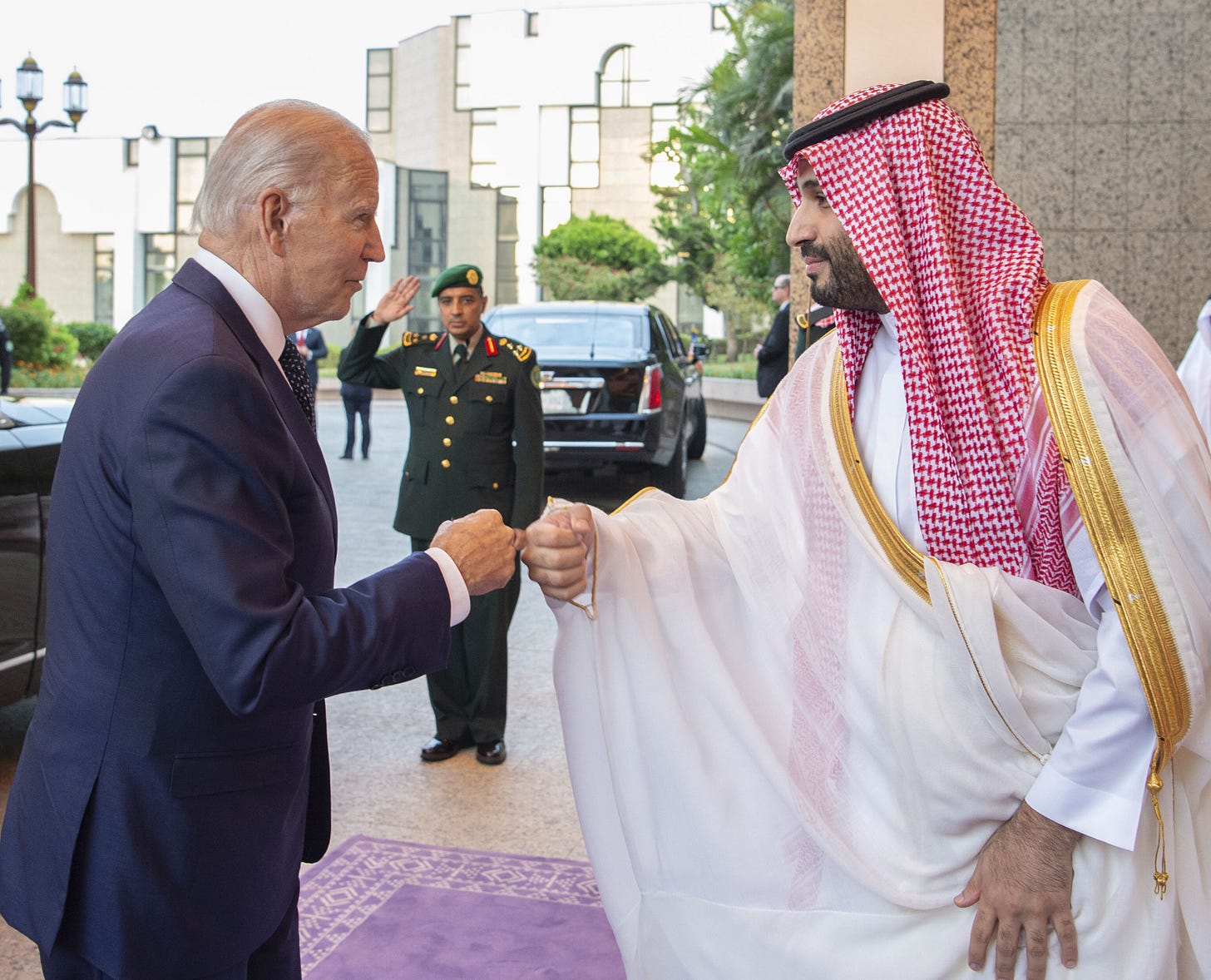A Saudi Nuke? Biden Is About To Give 'Mr Bone Saw' What He Needs
The U.S. president is pulling out all the stops to get a deal with Saudi Arabia.

There are unforced errors. There are mistakes we can see coming in advance. And then there's President Joe Biden aggressively pursuing a deal with Saudi Arabia that will give Crown Prince Mohammed bin Salman much of what he needs for a nuclear weapon.
Biden is pulling out all the stops. National security adviser Jake Sullivan spent a weekend in Riyadh in late May to secure a longstanding diplomatic priority that the administration hopes can incentivize Israel to stop its genocide in Gaza. It would fulfill – and upstage – Donald Trump's "Abraham Accords" between Israel and several Arab states by securing full normalization between Israel and Saudi Arabia, the most powerful among them.
But with Israel intransigent in its determination to assault Rafah, the Biden team has pivoted the deal to work as a bilateral endeavor, though the door remains open to the Israeli government to join. And for more than a month, the White House has declared that it's within field-goal range of an accord with the man ubiquitously known as "MBS," evidently trying to manifest momentum for it. The deal, which the Wall Street Journal reported last week is gaining momentum, would see the U.S. for the first time provide a formal guarantee of U.S. reprisal to any attack on Saudi Arabia. If Biden can close, he will immediately secure a signature diplomatic aspect of his presidential legacy.
When spotlighting the initiative over the past several weeks, the press has tended to focus on the defense guarantees and expanded access to sophisticated U.S. weaponry that the Saudi royals will gain from Washington. That's not unreasonable, considering that such weapons are sure to affect the balance of military power in the region, to say nothing of promising that U.S. troops will defend Riyadh in a military crisis. But the lasting impact of the deal is more likely to center around the United States agreeing to provide Saudi Arabia with technology, equipment, and expertise to enrich uranium on its own soil.
While details are scarce, that last part is crucial: the Saudis demand to control their own nuclear fuel cycle. Owing to its uranium deposits, "it's not natural for us to bring enriched uranium from a foreign country to fuel our reactors," the Saudi energy minister said in 2018. Whatever the reasoning, it ensures the Saudis will have the crucial component for a nuclear weapon. "Enrichment could bring Saudi Arabia to the brink of acquiring nuclear arms, and U.S. policy should prohibit it," a bipartisan group of nuclear experts wrote to Biden in September. They reminded him that stopping the proliferation of enrichment technologies has been the cornerstone of U.S. nonproliferation policy "since the dawn of the Atomic Age." Whatever safeguards will accompany a U.S.-Saudi nuclear deal, we can reasonably assume they will be nowhere near as aggressive as the nuclear inspection regime around Saddam Hussein.
“Mister Bone Saw”



